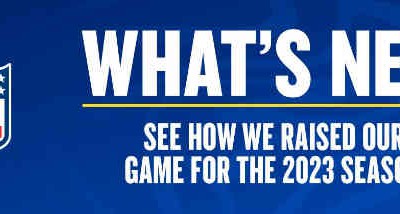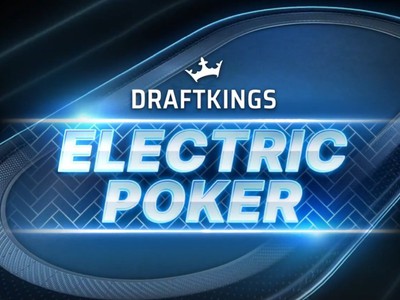Legal and Regulated Online Gaming in the United States
Welcome to US Gaming Review, your home for honest reviews and leading industry news on the US online gambling industry.
In the US, online gambling is regulated on a state level. This means that every individual state has the right to pass its own laws regulating what types of gambling are allowed, who can offer legal online gambling, and under what conditions.
This creates a somewhat confusing environment for US residents looking to place bets online, as they need to be familiar with the local laws and regulations of every individual state they want to play from, whether as residents or while just visiting.
US Gaming Review aims to help clear the confusion and provide a one-stop resource for everyone facing this dilemma. We cover everything you need to know about legal and regulated gambling in the United States, including a comprehensive overview and guide to gambling for every single state.
Here, on USGR, you will find full, accurate, and up-to-date information for every state, including the types of gambling available, particular rules to be aware of, available payment options, reviews of current promotions, updates on legislation as they happen, and much more.
Best Online Sportsbooks in the United States
Get started with legal online sports betting at top online bookmakers.
Welcome Bonuses for New Customers
Understand how we rate and review the top signup bonuses across US online casinos, poker rooms, and sportsbooks.
Welcome bonuses add a lot of value for the players and almost all regulated US sites have a lot to offer in this department. That said, some operators do a better job than others and it is important for you, as a player, to know how to recognize the best value out there.In our reviews, we spend a lot of time looking into what an online casino, poker room, or sports betting site has to offer in the bonus department. We pay attention to more than just sheer numbers, though, and dig deeper to really evaluate how good of a deal it is.
When determining the value of the bonus, there are a few important aspects that help paint the full picture, such as:
- The maximum amount one can claim
- The minimum deposit required to claim the bonus
- Wagering Requirements — i.e., how hard it is to turn the bonus into actual cash
- Game Restrictions — what kind of games you are allowed to play using bonus funds
We consider all of these factors in our process of reviewing and rating a welcome bonus offer and come up with a fair and honest evaluation of each individual bonus.
Of course, there is no one system that fits all players, as different users have different expectations. For some, higher wagering requirements are not a problem as long as they can get a big bonus from a big wager. Others seek value in offers with small wagering requirements that are a bit easier on the wallet, even if the bonus amount is somewhat smaller.
Whichever way you prefer to bet, we provide all the important information so that you can make the best decision and choose the best gambling site for you.
Exclusive Guides to US Online Gaming
Learn about legal, regulated online casino, sports and poker in the United States with our exclusive, in-depth player guides.
Where is Sports Betting and Gaming Legal in the United States?
See at a glance where US mobile sports betting and gambling is regulated.
has legal and regulated online sports betting and gaming.
has legal and regulated online sports betting.
online sports betting coming soon.
does not yet have any regulated online sports betting or gaming.
Latest US Online Gambling News
Read our latest industry and product news on the online gaming industry.
US Casino and Poker News
US Sports News
-
FanDuel Pays Out $20 Million to Sports Bettors in NFL Week 2
September 27, 2023
US Lottery and Industry News
-
PokerStars The Big Game on Tour Airs First Episode
May 13, 2024
US Gambling: State-by-State Overview
Full list of legal online casino, poker and sports betting across all 50 states.
Indicates that operators are live in the state
Indicates that it is legal and regulated, but no operators have gone live yet.
| Online Casinos | Online Poker | Online Sports Betting | |
|---|---|---|---|
| Alabama | |||
| Alaska | |||
| Arizona | |||
| Arkansas | |||
| California | |||
| Colorado | |||
| Connecticut | |||
| Delaware | |||
| Florida | |||
| Georgia | |||
| Hawaii | |||
| Idaho | |||
| Illinois | |||
| Indiana | |||
| Iowa | |||
| Kansas | |||
| Kentucky | |||
| Louisiana | |||
| Maine | |||
| Maryland | |||
| Massachusetts | |||
| Michigan | |||
| Minnesota | |||
| Mississippi | |||
| Missouri | |||
| Montana | |||
| Nebraska | |||
| Nevada | |||
| New Hampshire | |||
| New Jersey | |||
| New Mexico | |||
| New York | |||
| North Carolina | |||
| North Dakota | |||
| Ohio | |||
| Oklahoma | |||
| Oregon | |||
| Pennsylvania | |||
| Rhode Island | |||
| South Carolina | |||
| South Dakota | |||
| Tennessee | |||
| Texas | |||
| Utah | |||
| Vermont | |||
| Virginia | |||
| Washington | |||
| Washington D.C. | |||
| West Virginia | |||
| Wisconsin | |||
| Wyoming |
Types of Online Gaming Available in the US
Online Casino
Several US states have already legalized online casino gambling and more are sure to follow in the future, as more states revise their legislation and open up to online casinos. Players in regulated states can enjoy a great variety of gaming options on safe and modern platforms similar to those offered by international casinos.
Legal US online casinos offer some of the best video slots in the world — powered by major gaming studios like NetEnt, IGT, Big Time Gaming, and many other big names in the casino gaming industry. On top of slots and other electronic games, most of USA’s casinos also offer live dealer games provided by Evolution Gaming, the leading company in the live casino niche.
Online Sportsbooks
Sports betting is, by far, the most popular and widespread gambling activity in the US today. Many states have passed laws regulating online sports betting within their borders and we certainly expect to see more states legalize sports wagering in 2025. While registration processes and procedures may vary from one state to the next, all major aspects are pretty much the same across the board.
US bettors have access to online sportsbooks covering all major sports and competitions — from football, baseball, and basketball to hockey, tennis, and soccer, as well as MMA, golf, and even snooker. There is a wide variety of betting markets and bet types for bettors to choose from, along with plenty of generous bonuses and promotions to take advantage of.
Online Poker
Currently, there are only a few states offering regulated online poker, but this number is expected to grow in the coming months and years, as more states legalize online gaming. Licensed US poker sites are mostly state-specific, which means you can only play while physically present in that state, against other players who are also located in that particular state. There are a few exceptions to this rule, as New Jersey, Nevada, and Delaware have the Multi-State Internet Gaming Agreement, allowing them to combine player pools.
What you can expect to find as a player on these sites is on par with what you would find on international poker rooms. Licensed sites feature cash game tables with different game variations, daily tournaments with guaranteed prizes, special limited-time promotions, as well as major tournament series that take place at least a few times a year.
100% Legal and Safe Regulated Online Gambling in the United States
As previously mentioned, in the United States of America, gambling laws are passed on the state level and governed by local authorities and regulatory agencies. While there are certain federal laws that also deal with gambling, states are largely given free rein to regulate this area however they see fit.
Every state has its own body in charge of overseeing and enforcing laws and legislation related to gambling. These regulatory agencies — like the New Jersey Division of Gaming Enforcement or Pennsylvania Gaming Control Board — have a very important role in the gambling landscape.
First and foremost, these agencies are tasked with reviewing and approving gaming license requests. This means that every gambling operator seeking to do business in the state has to go through an extensive review process in order to be approved by the relevant state body and be granted the appropriate license before they can take a single wager.
The gambling commission’s job does not stop once the license is issued, though. They continue to oversee the operations of all licensed operators (online and land-based alike), making sure they do things by the book and stick to all relevant laws.
Another important job of state gaming commissions in the US is to serve as mediators between players and operators. If a player has a complaint about a casino or a bookmaker that they cannot resolve privately, they will turn to the gaming commission for help and resolution.
Although gambling is largely regulated on a state-by-state basis, recent years have seen some states enter interstate gambling compacts, allowing them to offer their services across the borders, with the other states in the pact. These agreements have mostly been created to cater to online poker operators, who can significantly benefit from shared liquidity and larger player pools.
To summarize, with the current legislation in the US, players can only participate in online gambling activities while physically present in a state where gambling is legal. While you do not have to be a resident of that particular state, you have to be within its borders for the duration of your gaming session and geolocation services will confirm your location to the operator before you are allowed to gamble. Playing from a different state is prohibited, even if you were to somehow get around geolocation technologies put in place to prevent it.
Why Choose a Legal and Regulated US Gambling Site?
While US players have always had access to a range of unlicensed and unregulated offshore sites, we strongly advise staying away from such operators. Participating in gambling activities on an illegal site puts your financial and personal information at great risk.
You should always go with a legal and regulated option available to you for a number of reasons, including:
- Safety of your funds
- Your personal information is protected and will not get into the wrong hands
- The gaming regulator has jurisdiction and can help you in the event of any disputes
- All games are regularly tested for fairness and randomness
- Access to responsible gambling tools and resources
How to Know if a US Gaming Site Is Legal?
Of course, it goes without saying that not everyone is an expert on online gaming and regulations, especially when they can vary so much from state to state. For an ordinary player, the biggest concern is often that they cannot be certain if a particular site they want to play on is actually legal. Luckily, it is easy to find out if a site is legit or not, once you know what key clues to look out for.
Signs that an online gambling site is fully legal, licensed, and regulated:
- The Gaming Regulator Seal: All licensed US sites will have a seal of approval from the state gaming authority displayed prominently in the page footer. You can also confirm this information is accurate, by looking on the state regulator’s website, which will have a list of all the licensed operators in that state.
- Land-Based Casino Connection: All regulated sites across the United States must have a land-based partner in the state in which they operate. This information should be readily available on the site and can usually be verified on the site of the land-based casino as well.
- A Name You Know: The licensing process in the United States is very strict and thorough, requiring rigorous background checks and substantial licensing fees. This means that only established and well-known industry names pass through the requirements and are able to obtain a license. Legitimate licensed operators will be established brands that have a name that you are likely to have already heard of and are somewhat familiar with.
- Clear Terms of Service: All US-licensed sites have very clear and concise terms of service available on the site, stipulating how old you have to be to play, what state the site is licensed to operate in, etc., as required by law. If terms are missing or seem unclear, it is probably not a regulated operator.
- Missing Customer Service Info: Legitimate, legal gambling sites aim to keep their customers happy and part of that is providing satisfactory customer service. You should be able to easily locate information on how to contact the operator in case of any issues. Customer service phone number, email address, and/or live chat info should be clearly listed on the site.
Responsible Gaming
The matter of responsible gambling is taken very seriously in the United States and all operators — regardless of which state they are licensed in — must adhere to very strict rules and legal requirements concerning responsible gaming. As with other state laws and regulations, the responsible gambling compliance is overseen by each state’s regulatory commission.
Casinos, sports betting sites, poker rooms, and all other operators offering any type of online gambling activities must provide players with tools they can use to control their gaming habits and protect their finances. These include:
- Deposit limits (daily, weekly, and monthly)
- Loss limits
- Cool-off periods
- Self-exclusion
- Access to problem gambling resources
These rules are in place to protect players and are another key reason why you should always stick to regulated US-based operators. Legal, licensed sites have an obligation to take responsible gambling seriously and do everything in their power to protect players and prevent things from getting out of hand.
In addition to their own tools, operators must also provide players with links and contact information for organizations that deal with problem gambling and can help people who may be struggling with their gambling. Every state has its own unique organizations dedicated to this issue, but there are also some nation-wide organizations that can assist players in any state across the US.
Many states also give people the option to put themselves on self-exclusion lists that prevent users from accessing any gambling operators — online or live — that are licensed in the state. Some also offer software that blocks users from accessing any online casinos and other gambling websites.
Popular Payment Options for US Online Gambling
Players in the United States have access to a variety of convenient payment methods that they can use to deposit money and withdraw their winnings from the online casinos, poker rooms, and sports betting sites they wager on. Exact options can vary from one state to another, and vary among individual operators, but here is our guide to the primary payment options available across the country:
Credit Cards
Most regulated US gaming operators accept popular debit and credit cards such as Visa, MasterCard, AmEx, and Discover. These are very convenient for the most part, as players can simply transfer money from their card to their gaming account in a matter of seconds.
However, because the legalities surrounding regulated online gambling in the US are still somewhat unclear, it sometimes happens that banks and payment operators block these transactions. There is not always an explanation as to why it happens, but it can be somewhat frustrating, and it leads people to using alternative options.
E-wallets
Third party e-wallet services have been the preferred payment option of gamblers worldwide for many years. These provide a simple and convenient way to transfer money online without actually needing to share your banking details.
The most popular option in the US is definitely PayPal, although some gaming operators also accept alternatives like Skrill or Venmo.
These digital wallets act as a middleman of sorts, allowing players such as yourself to move funds from your bank or card, through the wallet, and onto the site you are making the purchase on, without having to directly share any banking information with the merchant you are transacting with. Instead, you only have to share your info directly with the e-wallet service (where it is kept secure under many layers of digital protection) and, once your digital wallet is set up, you can then use it across various sites, including most casinos and betting sites in the United States.
E-check Services
E-check payment options are very popular in the US. This method gives players an opportunity to move money straight from their bank accounts to the casino of their choice and the same method can also be used for withdrawals.
The most popular e-check service processing these types of transactions is ACH (Automated Clearing House). Deposits with this method are usually instantaneous and there are no fees to worry about, so it is no surprise that so many players pick it as their favorite way to pay.
Pay at the Cashier
One unique characteristic that makes US regulated casinos different from those around the world is the fact that all individual state laws require operators to have a physical presence within the same state. This means that all legitimate US gambling sites are required by law to partner with a land-based casino in their state.
Thanks to this, players often have access to another very convenient payment option — in-person payments. Many casinos, sportsbooks, and poker room operators allow players to top up their accounts and make withdrawals at their physical cashier locations.
If you live near the casino, it is actually a very convenient option. The process is quite straightforward, as you only need to present your personal documents, such as government-issued photo ID.
Prepaid Options
Like elsewhere, players in the US can also use a variety of prepaid options to fund their online gambling accounts. As the name suggests, these options allow people to prepay a certain amount and then use a special code on the site of their choosing to add the funds to their account.
Deposits are processed immediately and this option allows players to use cash instead of having to pay via their banks. For those wanting to keep their gaming habits private, those looking to limit their expenditure, or those who do not have access to other options, it is a very good alternative.
The downside is that these prepaid cards and vouchers cannot be used for withdrawals. This means that players still need to connect an alternative payment method to their casino account in order to cash out their winnings when the time comes.
History of Online Gambling Legislation in the United States
In-person gambling has long been an American institution, with the iconic Las Vegas being regarded as the casino capital of the world. However, the US has had a rather turbulent relation with online gambling over the years.
For about a decade, international online casinos, sports betting sites, and internet poker rooms operated in the US. Players were able to access poker rooms like PokerStars and Full Tilt, as well as a variety of online casinos and sportsbooks.
However, in 2006 the infamous Unlawful Internet Gaming Enforcement Act — better known under its acronym UIGEA — was passed and everything changed. While UIGEA did not specifically make online gambling illegal, it did make it illegal for financial institutions to facilitate transactions to and from online gambling operators.
UIGEA created a lot of confusion in the industry and caused some operators — like partypoker, for example — to withdraw from the market. Others decided to ignore it and kept offering services to those in the US. While the sites that continued to operate in the US had to deal with some banking issues due to the UIGEA, things seemed pretty normal for the most part.
Then, in 2011, perhaps the single most significant event in the US online gambling history took place. On April 15, 2011, the US Department of Justice unsealed indictments against 11 individuals associated with three major online poker operators — PokerStars, Full Tilt, and Absolute Poker/Ultimate Bet. The DOJ seized the operators’ domains as well as 75 bank accounts from 14 countries and made it clear that offshore gambling operators were no longer welcome in the US.
Some believed that this was a step in the right direction and saw it as a sign that US officials were looking to regulate online gambling on the federal level. However, for the next couple of years, there was almost no movement on the federal front and very little progress within individual states.
In April 2013, Nevada became the first state to offer regulated online poker in the United States. However, the games were only available to players physically present in the state. In the months to follow, two more states joined the fray, launching their own regulated online gaming markets. Delaware began offering online poker in October 2013 and online casinos games one month later, in November 2013. New Jersey launched both online poker and online casino games in November 2013.
Up to this point, most efforts remained on the state level, as creating interstate poker networks was legally questionable due to the Wire Act.
The Wire Act of 1961 was enacted with the goal of preventing interstate sports betting using telephone lines. However, online gaming opponents used the pre-internet law to advance the narrative that interstate online poker was illegal. However, in February 2014, New Jersey and Delaware entered into the first-ever Multi-State Internet Gaming Agreement.
Aptly named, the Multi-State Internet Gaming Agreement (MIGA) allowed the online poker operators that were offering their products in both NJ and DE the ability to combine their player pools. This meant that players in those two states could compete against each other in the same tournaments and cash games on the same network.
New Jersey joined MIGA in late 2017, creating the first tri-state player pool in the US, launching in April of 2018. Almost immediately, WSOP.com — operating on the 888poker platform — took the lead in the New Jersey market, demonstrating the value of interstate online poker player pools.
To this day, WSOP remains the only online poker operator to offer shared liquidity across its network, despite the fact that legal regulated online poker is now offered in Pennsylvania (legalized November 2019) and Michigan (legalized January 2021).
West Virginia (legalized June 2019) and Connecticut (legalized June 2021) have also legalized online gaming in recent years. While companies have been eager to move forward with online casinos and online sports betting, the population of these smaller states has made poker operators apprehensive about launching without a clear path to shared liquidity.
Although federal courts have ruled the Wire Act does not apply to online poker, without a law explicitly making it legal or a commitment by the DOJ not to prosecute under the arcane law, state gaming regulators have been hesitant to allow interstate online poker.
Sports Betting and PASPA
Another big legal issue that needed to be addressed was that of US legislation surrounding online sports betting and sports betting in general. With the 1992 PASPA (Professional and Amateur Sports Protection Act), lawmakers made sports betting illegal across the country, with the exception of just a few states.
Nevada was the most notable exception, with full-service sportsbooks being a part of many casinos in the state. Other states — including Delaware, Montana, and Oregon — were exempt from the complete prohibition affecting most of the country because they already had state legislation on the books that allowed for some limited forms of sport betting.
Then, in 2018, the state of New Jersey won a historic battle in the US Supreme Court. The court ruled that PASPA was unconstitutional and allowed each individual state to regulate sports betting within its own borders, however it sees fit.
Following this historical decision, operators in a great number of US states set up brick-and-mortar sportsbooks and online gambling sites, allowing their residents and visitors (as long as they are US citizens) to legally bet on sports. The move by states to offer 100% legal and regulated sports betting is still underway with more new states opening their markets every year.
FAQs
Is online gambling legal in the US?
There is no federal law regulating online gambling in all of the United States. Instead, every state has the right to pass its own gambling laws and regulations. Online gambling is legal and allowed in some states, but there is no uniformity here, as some states only offer sports betting, while some others allow online sportsbooks, online casinos, and online poker rooms. To find out whether online gambling is legal in your state, scroll up to find our chart where we break down, state by state, which online gambling activities are legal in which states.
What types of online gambling are allowed in the United States?
Generally speaking, all types of gambling online — online poker, casino gambling, sports betting, fantasy sports, and lotteries — are available in some parts of the US. However, not all of these are available in all states and there are many states that still do not allow any form of online gambling except for lotteries. Since we know it gets confusing with so much variation between states, we at US Gaming Review aim to make is easy for you by breaking down everything you need to know about legal betting state-by-state in our Individual State Guides to Online Gambling, which are accessible via the nav bar above.
How can I tell if an online gambling site is legal and safe to play on?
To find out if an online gambling site is legal and licensed in the US, look for the regulator’s seal of approval in the page footer. If the site is licensed, you will find the logo of the appropriate state regulatory authority — such as Michigan Gaming Control Board or New Jersey Division of Gaming Enforcement. If you are still unsure, you can cross-reference the information with the list of licensed operators on the state regulator’s site to confirm that the license is real and valid.
How do I deposit and withdraw money on licensed US gambling sites?
US casinos, poker rooms, and sports betting sites accept a variety of payment options including credit cards, e-wallets, electronic checks, bank transfers, prepaid cards, and some even allow in-person deposits and withdrawals at their land-based partner casino. Thus, you can choose from many different methods and choose the one that you are most comfortable using to fund your online gambling.
How old do I have to be to gamble on regulated US sites?
While gambling laws vary from one state to another, in most jurisdictions you will have to be 21 years or older to play online casinos, place wagers on online sportsbooks, or play online poker. When it comes to lotteries, participants usually need to be 18+ to play.












